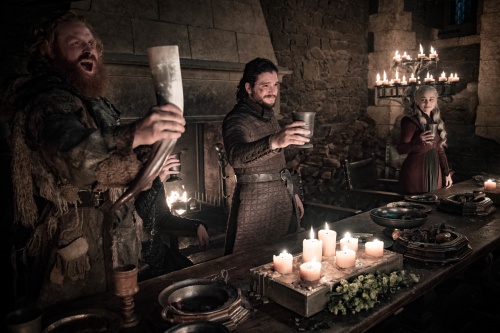
Stories of the 2011 Emmy Nominations
July 14th, 2011
My favorite thing about Emmy nomination morning is the sense of hope.
It lingers in the air before the 5:35am PT announcement – last night, as both coasts drifted off to sleep, people on Twitter were posting lists of contenders that they were crossing their fingers for, still believing that shows like Fringe or Community had a shot of breaking into their respective categories. This is not a slight on either show, or on their fans who choose to believe. As always, some part of me wishes that I didn’t know enough about the Emmy nomination process to logic away any chance of sentimental favorites garnering a nomination.
My least favorite thing about Emmy nomination morning is the moment the bubble bursts. When the nominations are actually announced, it’s this constant rollercoaster: one nominees brings excitement while another brings disappointment. The bubble hasn’t burst yet, at that point, as there are often enough shifts in momentum that no one emotion wins out, leaving us struggling to figure out just how we feel.
The moment it bursts is when you open the PDF and see all the nominations laid out before you, and when the math starts adding up. Twitter has quickened this process: you don’t need to wait until critics and reporters break down the nominations, as everyone is tweeting the sobering details by the time 8:45am rolls around. Excitement in one area turns to disappointment in another, with one favorite’s surprise nomination becoming deflated when you realize that other favorites were entirely shut out.
As always, I was one of those people sorting through the list of nominations, and the bubble did burst at a certain point. It was the point when I remembered that surprise nominees are often unlikely to be surprise winners, and that for every category with a surprising amount of freshness there’s another that reeks of complacency and laziness. These are not new narratives, of course, but they’re narratives that overpower any sense of hope that could possibly remain after a morning of sobering reality, and that temper any enthusiasm that might nonetheless remain.
Although we cannot say that there is no enthusiasm to be found. While there are no real dominant narratives at this year’s Emmys, I do want to focus on a number of stories that I consider important based on the nominations, some of which involve excitement and others which involve that defeatist Emmy spirit we cynics hold so dear. One deals with how a network fights to remain relevant after giving up its Emmy bait, while another deals with the failings of an oft-derided set of categories. The others, meanwhile, look at the difference between being nominated and being competitive, as well as why it might be that an entire set of categories can’t help but feel like a disappointment.
Continue reading →


![GOT610_111215_HS__DSC4056[1]](https://memles.files.wordpress.com/2016/06/got610_111215_hs__dsc40561.jpg?w=500)









